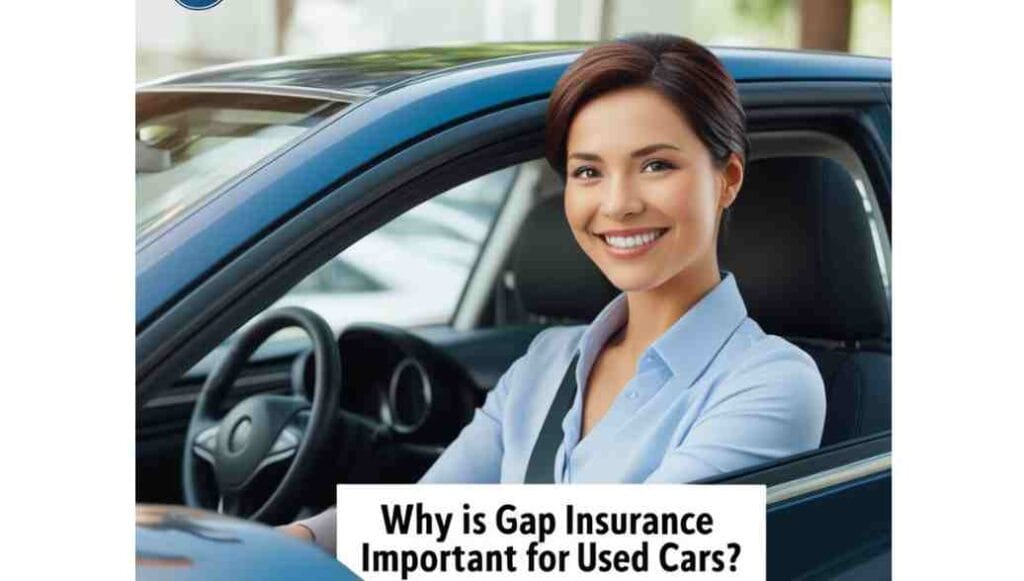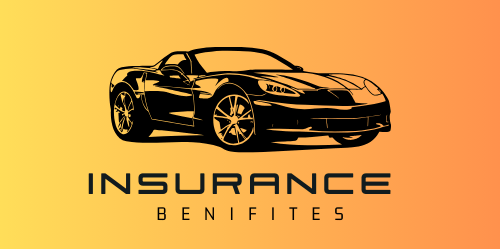Gap insurance for used cars is an important safety net that numerous drivers might not consider. Imagine what would happen if your car was stolen or genuinely harmed in an accident. For used car owners, the surprise of still owing cash after losing their vehicle can be upsetting. That’s where Gap insurance comes in. It makes a difference to protect you from financial loss when your car’s value drops altogether. In this directory, we’ll cover everything you wish to know, including gap protections for utilized cars. From how it works to when it’s a keen choice, we’ll make beyond doubt you understand this critical coverage so you can drive with peace of mind. Let’s jump in!
What is GAP Insurance?
Gap insurance is crucial when your car is totaled or stolen. It particularly covers the distinction between what you owe on your car credit and its real cash value.
When an accident happens, your standard auto protections survey the car’s showcase esteem. This esteem is frequently lower than your remaining credit balance. For illustration, let’s say you owe $20,000 on your credit. If your car is valued at $15,000, your protections will pay out that sum.
You’d still be dependable for the $5,000 gap in this situation. This can be where Gap insurance gets to be basic. It’ll cover that $5,000 distinction.
This implies you won’t face unexpected debt after losing your car. Having GAP insurance offers peace of intellect. You’ll be able to drive knowing you have got financial security. This scope is particularly imperative if you made a little down payment or financed a large sum.
It makes a difference if you dodge being upside down on your advance. By and large, Hole protections serve as a security net, guaranteeing you’re not cleared out with a money-related burden in difficult circumstances.

Why is Gap Insurance Important for Used Cars?
Quick Depreciation
Utilized cars lose value but are slower than modern cars. The minute you drive a used car off the lot, it loses value. If you financed your purchase with a small or no down installment, you immediately owe more than your car is worth. This makes Gap insurance exceptionally critical.
Example Situation
Imagine you purchase a used car for $20,000. You back it with a small down payment. After a year, the car’s esteem drops to $15,000. If you add up to the car in a mishap, your insurance pays $15,000. Be that as it may, you still owe $18,000 on your loan. Gap insurance would cover the $3,000 difference.
When Should You Consider Gap Insurance for Your Used Car?
High Advance Amounts
Gap protections are essential if you financed a used car with a high loan sum. The more you owe, the greater your chance of being upside down on your credit.
Long Advance Terms
Loans over 60 months increase your chances of owing more than your car is worth. Typically, this is particularly true if the car depreciates faster than you’re paying off the credit.
Minimal Down Payment
Your risk increases if you make a small or no down payment. Numerous loan specialists permit moo or zero down payments, which may lead to owing more than the car is worth early on.
Frequent Mileage
If you drive a part, consider getting Gap insurance. With more miles, your car loses value quicker. The more you drive, the less your car is worth.
Trading in an Upside-Down Car
If you exchanged a car that you just owed more on than it was worth, the remaining adjustment may be included in your modern advance. This will increase your money-related risk. Gap insurance can give additional assurance in these cases.

How Does Gap Insurance Work?
The Claims Process
Accident Occurs:
You get into an accident, and your car is totaled or stolen.
Insurance Assessment:
Your auto insurance company determines the value of your car. They choose how much to pay you based on the car’s advertised value.
Payout Calculation:
Your car’s showcase esteem is $15,000, but you owe $20,000 on your credit. Your auto insurance pays $15,000.
Gap Insurance Coverage:
Your Gap insurance covers the $5,000 difference. You’re no longer responsible for that sum.
Restrictions and Exclusions
Gap protections could be better. Here are a few restrictions:
Time Limitations:
A few arrangements may, as it were, be valid for a certain period after buying the car.
Avoidances:
Approaches may not cover certain vehicles or situations, like pre-existing harm or late payments.
Deductibles:
You might still have to pay any regular auto insurance policy deductible.
How to Purchase Gap Insurance for Your Used Car?
Dealership Options
Many car dealerships offer Gap insurance after you purchase your car. This could be convenient, but it might cost more. Continuously compare costs and scope alternatives before choosing.
Protections Supplier Options
You’ll also purchase Gap insurance through your regular car insurance supplier. This alternative is frequently cheaper. Check with your specialist to see if they offer Crevice protections as part of your policy.
Online Comparison
Numerous websites permit you to compare Gap insurance sites. This makes a difference. You discover the best coverage at the lowest cost. Take advantage of these devices to urge the most excellent bargain.
Fetched of Gap Insurance
The fetched of Crevice protections shifts based on a few variables, counting:
State Directions:
Distinctive states have diverse rules that can influence the cost.
Driving Record:
A clean driving record may lead to lower costs.
Vehicle Sort:
The make and show of your car can impact the cost.
Scope Sort:
Whether you purchase from a dealership or your insurance provider can influence estimating.
Hole protection can cost between $20 and $40 per year when included in your auto approach. Dealership alternatives may be more costly.
Are gap Insurance Required?
GAP protections aren’t required by law. Be that as it may, a few banks may require it if you finance a car. It’s usually widespread if you make a little down installment.
If you’re leasing a vehicle, Gap insurance is frequently required. It secures you and the lender in case of an add-up to misfortune. The moneylender needs to guarantee they get repaid on the off chance that the car’s esteem drops.
Sometime recently, when buying a car, audit your advance assertion. Check if Gap insurance is specified as a prerequisite. If it is, you ought to get it to finalize your advance.
In case it’s not required, consider your circumstances. Gap insurance could be a keen choice if you have financed a considerable sum or have a long advance term. It can secure you from monetary misfortune in case of a mischance. In rundown, whereas Gap insurance isn’t lawfully required, it can be essential based on your financing terms. Always peruse the fine print before making a choice.
When Can You Cancel Gap Insurance?
You can cancel Gap insurance once you owe less than your car’s real cash value. This, more often than not, happens several times after you begin making payments. As you pay down your credit, your car’s esteem may increase.
To know when to cancel, routinely check your advance adjustment. Using online guides, compare it to your car’s market value. If your credit sum is less than the car’s worth, it’s a great time to cancel.
You can also cancel if you pay off your credit early. You do not require Gap insurance if you offer or trade the car. Continuously survey your insurance approach for cancellation points of interest.
A few companies may discount any unused parcel of your Gap insurance. Be sure to inquire about this after you cancel. Canceling at the proper time can save you cash while guaranteeing you’re not paying for the scope you no longer require.
Conclusion
Gap insurance for used cars may be a wise choice for numerous drivers. It gives you peace of mind by protecting you from major budgetary misfortune if your vehicle is totaled or stolen. If you finance your used car with a tall advance sum, a long-term, or a little down installment, consider getting Gap insurance to defend your investment.
Assess your needs, compare choices, and make an educated choice. Protecting yourself from possible misfortune will allow you to appreciate your car without stressing about money-related issues.

